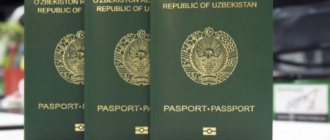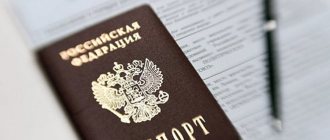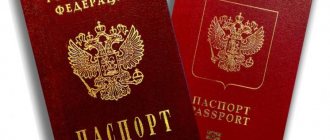Is dual citizenship allowed?
| in Germany | In Russia |
| In Germany, you are allowed to be a citizen of several countries at once. This right is given to the following categories of persons: – ethnic Germans (born and raised in Germany); – Jews (as compensation for genocide); – citizens who were deprived of German citizenship in the period from 1933 to 1945; – contingent refugees; – citizens of other countries who have lived legally in Germany for more than 8 years and have an indefinite residence permit. The remaining category of persons has the right to obtain German citizenship if they renounce Russian citizenship. This also applies to German citizens who want to obtain another citizenship - to do this they will have to renounce German citizenship. | In accordance with Article 62 of the Constitution, all Russian citizens have the right to become subjects of another country, even in the absence of an international treaty between the countries. Part 2 art. 6 Federal Law No. 62 of May 31, 2002 “On Citizenship of the Russian Federation” states that the acquisition of another citizenship by a person who is a Russian citizen does not entail the termination of Russian citizenship. Thus, in the Russian Federation there is a loyal attitude towards persons with two citizenships. |
Bipatrism from the point of view of the laws of the Russian Federation
Article 62 of the Constitution of the Russian Federation allows a citizen to have a passport of a foreign state. This does not deprive him of his existing civil status. In Art. 6 of the Federal Law “On Citizenship of the Russian Federation” dated May 31, 2002 No. 62-FZ, issues of dual citizenship are regulated in detail. A Russian citizen who belongs to another state is considered on the territory of the country only as a citizen of the Russian Federation. Having a foreign passport does not limit rights and does not relieve obligations to Russia.
Thus, is it possible to have German and Russian citizenship? Russian legislation gives a positive answer to this question. This becomes possible if the applicant belongs to one of the categories for which German law allows dual nationality.
According to the procedure, anyone who wants to obtain Russian citizenship is required to renounce their previous citizenship. The law does not prohibit citizens of the Russian Federation from acquiring a passport of another state, with the exception of certain categories of civil servants of the Russian Federation.
When is dual citizenship possible?
The Russian Federation has concluded an Agreement on dual citizenship with the Republic of Tajikistan. Until May 2021, a similar agreement was in force with Turkmenistan. Those who acquired binational status before this period retain it at the present time. The Russian Federation does not have international treaties with other countries.
Persons with Russian and foreign citizenship bear obligations to both states and have rights in the territory of the respective countries.
Notification about obtaining a foreign passport
Despite the loyal attitude of the Russian Federation towards dual citizenship, the holder of a second passport is obliged to inform the authorities about its availability. A Russian citizen who has acquired foreign citizenship or received a residence permit in another country is given 60 days to notify the Main Department of Migration Affairs of the Ministry of Internal Affairs about this.
The notification is issued on a special form. It must be provided either in person or sent by letter via Russian Post. Those who live abroad are exempt from this obligation. They will have to notify the migration service within a month after entering the Russian Federation.
Penalties
Since August 2021, sanctions have been introduced by law for concealing or untimely provision by a Russian of information about his second citizenship. For failure to meet deadlines, providing incomplete data and other violations of requirements, an administrative fine is provided.
In addition, evading the obligation to notify the migration service about obtaining citizenship or a residence permit in another country risks criminal liability.
How to get dual citizenship Russia-Germany?
In Germany, only certain categories of people are allowed to have two citizenships at once.
The rest must fulfill a number of conditions:
– if you have a special permit confirming an indefinite residence permit in Germany, an application for German citizenship is submitted;
– an applicant who has lived in Germany for more than 8 years;
– on the date of filing the application, the person does not receive unemployment benefits or other social assistance from government agencies;
– the applicant speaks German at level B1 and has a certificate indicating this;
– the applicant must be competent in matters of the federal structure, legal system and living conditions in the country;
– no criminal record and not only in Germany;
– the applicant must accept the Constitution of the Federal Republic of Germany and renounce citizenship of another country (in this case, Russian).
Once the above conditions are met, a certificate of German citizenship can be awarded.
There are exceptions, for example, being in a registered marriage for more than three years gives the applicant the right to become a full German citizen. Also, an applicant who knows the German language perfectly, the federal structure and way of life of the country on a level with ethnic Germans, the 8-year mandatory period of permanent residence may well be reduced to 6 or 7 years.
The easiest way to obtain German citizenship is to marry a German citizen.
German citizenship - features of obtaining for citizens of the Russian Federation
The card allows foreigners to quickly become German subjects and subsequently reside in this country. To obtain it, employers are required to convince representatives of the migration service of the uniqueness of the invited person as a specialist in a certain field of activity. In turn, Russians must have a higher education diploma that will be recognized in Germany, as well as work experience of over 5 years.
Jews staying for permanent residence in Germany undergo an accelerated procedure for obtaining citizenship, and their applications are considered by the migration service out of turn. To apply for the status of a German citizen, this category of persons must have lived in Germany for 6 years.
Required documents
The applicant must have the following documents:
- resident card;
- a document confirming passing the German language test at level B1;
- a document confirming marriage with a German citizen;
- a document confirming no criminal record;
- receipt of payment of the state fee in the amount of 255 euros;
- a document confirming non-receipt of social benefits and benefits from the German government.
Russian citizenship in Germany: you cannot change it
In the Federal Republic of Germany alone, 1,803 people renounced Russian citizenship in 2015 , according to For what reasons do people do this?
Having lived abroad for 16 years, I also thought about changing my citizenship. For several reasons. For example, because I wanted to take part in public life and influence the decisions of the society in which I live.
RUSSIAN OR GERMAN?
Five years ago, a public debate broke out in our small Franconian town. The city has decided to build new nurseries on the border of the city park. To do this, it was necessary to cut down five centuries-old trees. Heated battles broke out, society was divided into tree defenders - opponents of the construction (mainly elderly and childless) and, conversely, construction defenders who agreed with the cutting down of trees. In order to resolve the dilemma bloodlessly, it was decided to announce a referendum. By that time I had a three-month-old son in my arms, and I desperately needed this nursery. But, as a Russian citizen, I did not have the right to participate in the referendum. That’s when I first regretted that I didn’t have German citizenship.
True, once you receive a German passport, traveling to your homeland becomes more complicated: they now require a visa. But the world is opening up. According to the Global Passport Index, the German passport is one of the most authoritative in the world. Currently it is in third place after Singapore and South Korea. With it you can enter 162 countries in the world without a visa.
When the rest of the family already has German passports and can fly to America or London at any time, it is only a matter of time before my mother also acquires one.
Obtaining new documents (international and internal passports, for example) takes from two to four weeks and requires two times fifteen minutes each (for trips to the town hall). But not months - as in the case of a Russian passport - to collect documents, wait for an appointment at the consulate, travel to the consulate, or even to your small homeland, where it is only possible to change your internal passport.
Those living abroad are being pushed to renounce their citizenship by laws adopted in Russia over the past few years. Previously, the passport lay and did not bite - just think, you cannot take part in elections in the country of residence. But at any moment, jump on a plane, and you’re already in Russia. But now a law has been passed stating that it is necessary to report residence permits and second citizenship. A law has been adopted to change the status of currency and tax resident. You go to your homeland once for a week - and you are already a resident. Show printouts from the bank about the movement of funds, translated and certified by a notary. Moreover, few people are interested in how much time and money I will have to spend in order to comply with all the requirements law-abidingly. If you didn’t present it, didn’t declare it, you’re already a violator (I made the decision to refuse at the beginning of 2017, when the legislative situation looked exactly like this).
So I would rather get a visa by mail through a visa agency than become a violator due to failure to comply with troublesome requirements.
BECOME A GERMAN CITIZEN
Obtaining citizenship is a project that lasts for a year and requires, in addition to time, money and patience. It consists of several stages and resembles an obstacle course.
First, you need to find out whether the person who decides to change citizenship has the right to do so. This right is granted only if certain requirements and conditions are met. Therefore, the statement that “all refugees in Germany are immediately given citizenship” is nothing more than a fairy tale.
Germany grants citizenship after eight years of residence in the country. Moreover, the study time is only counted half. The applicant must also be financially independent, for which it is necessary to present certificates of income from the place of work, a contract or a letter from the employer, which confirms that the contract is unlimited. The requirements also include an indefinite permit for permanent residence, sufficient knowledge of the German language, a successfully passed integration test, no criminal record, recognition of the Constitution of the Federal Republic of Germany, and renunciation of previous citizenship. These are general requirements, there are exceptions and details. So, to find out whether you have the right to change citizenship or not, it is better to trust the professionals - employees of the department for foreigners' affairs.
I ended up taking advantage of another opportunity - a change of citizenship is allowed for a German spouse after two years of marriage.
Conditions for changing citizenship through marriage:
the marriage is recognized under German law and is valid at the time of change of citizenship;
lasts for at least two years;
the German husband or wife has been a German citizen for at least two years and is also an applicant at the time of change of citizenship;
you and members of your family independently run a household in Germany, your life is “give the date of the beginning / end of the Second World War”). Sometimes - elementary ones for those who have lived at least a little in Germany (“Name the capital of Bavaria: Ingolstadt, Regensburg, Nuremberg, Munich”). True, sometimes there are tricky ones (“Who makes up the Bundesrat?”, “Who was the first Chancellor of Germany?”; “What happened in East Germany on July 17, 1953?”).
The test is taken like an exam - in writing, with a time limit, on a predetermined day. The results arrive by mail in three weeks.
After the official checks the conditions and concludes that they have been met and the application to change citizenship has a chance of success, she gives the applicant a long list of documents. Compiling this folder took me several months. There is a certificate of successful completion of the integration test, and a marriage certificate, and letters from my husband’s work (the authorities were interested in how long he had been working, whether it was a fixed-term or open-ended contract), and statements about his salary, and my German diploma... And a lot, a lot more.
Having finally collected all the necessary documents, I again came to the department of citizenship affairs.
After checking the papers, the official said: “Well, I’ll go make copies of your originals, and I’ll give you one list. There are the names of organizations - look and mark those that you support in some way - with donations, buy their magazines or something else..."
It must be said that public organizations in Germany are always collecting money for charity. They go from house to house or talk to passers-by in, “Heart for Animals” and thousands of others. Their goal is for a person to sign a subscription and every month a certain amount, albeit a small one, will be transferred from his account to a good cause.
Until now, I have managed to avoid such subscriptions: I don’t like subscriptions in principle, I’d rather help in a targeted manner.
But I haven’t helped large charities lately. “I’ll fly with my citizenship like plywood over Paris,” I thought dejectedly.
But, looking at the list, I realized that we were not talking about animals or the Red Cross at all.
It was a list of five sheets. About two hundred Islamist terrorist organizations were listed on ten pages. Well-known ones, like Al-Qaeda or ISIS (banned on the territory of the Russian Federation). And completely unfamiliar ones, like the Islamic Union of Student Youth.
This is how they will come up to you on the street, I thought, and ask you to donate a euro in favor of such a union - you will give, of course, in your ignorance, who is fundamentally against student youth, be it Islamic or not? - and then it turns out that you supported terrorists!
When the official returned, I was still busy with the list, carefully making sure that I put a cross in the correct “do not support” column.
— Still busy? - asked Frau Rittmeier.
- Ugh, there are so many of them! - I burst out.
- Unfortunately yes. And every day it gets even bigger. We barely have time to cope.
I wisely chose not to continue the conversation.
It’s funny that I wrote a certificate of no criminal record for myself. That is, I wrote in the style: I have no criminal record, I swear by my mother. And she signed a piece of paper that she was warned about liability for giving false testimony. This was quite enough for my consultant.
Having accepted the documents, the official sends them to higher authorities, where they make a decision on issuing citizenship. After about a month, the answer comes - and, in a positive case, a certificate of guarantee of its provision. But citizenship itself is not yet. To get it, you need to abandon your previous one, in my case - Russian. My road lay in Munich, to the Russian Consulate.
On his Internet page there is a detailed list of documents that need to be collected and presented for refusal. Application, tax certificate confirming the absence of debts, Guarantee of German citizenship, translated and apostilled, photographs and - attention! - two stamped envelopes with a return address! They will then send the applicant an invitation to appear at the consulate. Yes, that’s right - the Russian state does not have the funds for envelopes and stamps.
I had to go to the consulate twice to submit documents, having made an appointment two months in advance (they didn’t give me time in advance). And four months later - without an appointment - personally pick up the notice of approval of the renunciation of citizenship and hand over your Russian passports. The birth certificate is stamped with the stamp “Resignation of citizenship issued.”
Since then, you are officially no longer a Russian citizen, but also not German. Suspended between heaven and earth, without a single ID in hand. Not a very pleasant feeling.
AT THE CONSULATE
In my subjective opinion, the number of people renouncing citizenship has increased. Previously, there was no one at the second window, but here they came one after another to find out, hand in documents, and get a final certificate. Middle-aged men, girls. Even one grandmother came.
Although what kind of grandmother is a fashionably dressed elderly lady, on the street you would never distinguish her from a German woman.
— I have both German and Russian citizenship. I want to give up Russian,” she said through the window.
The employee apparently decided that the grandmother was crazy. I decided to help.
“Why should you refuse?” he began to explain slowly, clearly, as if he were mentally retarded. — They usually refuse in order to get German. But you don’t have to refuse, you already have German, you are from a rare happy category of citizens. You can fly to Russia without a visa, but if you refuse, you will need a visa.
The elderly woman listened to his speech, and then said firmly and clearly:
- Believe me, I weighed everything. And I have a good reason for refusing.
And it became clear that this was a position, and not a whim at all.
My turn has come and now I have in my hands the long-awaited confirmation of my renunciation of citizenship. Now it goes to a translator for translation, and then to a familiar official.
GERMAN TRUST
- And bring me, in addition to the notice with translation, also a Russian foreign document. If you passed your foreign passport, then confirmation from the Russian consulate that they have it.
My jaw dropped. I handed over my passport, no one gave me confirmation.
“What now, go two hundred kilometers to Munich for confirmation?” - was spinning in my head.
But again I was saved by German gullibility.
“If so,” says the official, “write by hand yourself that you handed over your passport and did not receive confirmation.”
I wrote it.
Right in the office, she solemnly presented me with a “Certificate of Citizenship”, a welcome letter from the Bavarian government, a warning that if I received subsequent citizenship, I would lose my German one. And the Constitution.
My road lay to the town hall - where all the other burghers receive their passports.
A month later, I became the proud owner of a plastic card (instead of an internal passport) and a foreign passport.
The same one that opens doors to 166 countries of the world.
QUESTION PRICE
The German side charges €255 for the issuance of citizenship. Plus the test costs €25. If you add the fee for translation of documents, the fee for issuing a new passport, the fee to your home consulate, trips to the Russian consulate - it will come out to about €500.
The point of view of the authors whose articles are published in the “Opinions” section may not coincide with the position of the editors.
Subscribe to our channel on Telegram . We talk about what others are forced to remain silent about.
Dual citizenship from birth
In accordance with the Law, in force since 1935, children born in Germany automatically become German citizens if at least one of the parents is German.
Since 2000, the conditions for obtaining citizenship by children have been simplified. If one of the parents has a temporary residence permit or permanent residence permit and has lived in Germany for more than 8 years.
Amendments were introduced in April 2014. Children born to persons permanently residing in Germany may simultaneously have dual citizenship.
The right to dual citizenship was also granted to persons under 21 years of age, who had studied at a German school for at least 6 years and who had lived in Germany for 8 years or more. Persons upon reaching the age of 21 previously had to choose one citizenship, but now this is no longer necessary.
Obtaining German Citizenship - Step by Step Guide
In Germany, the procedure for obtaining citizenship is carried out at the Einbürgerungsamt. The family is invited to the office of the head of the department at the appointed time. In a solemn atmosphere, standing, the official asks the migrant to read aloud the following paragraph: “I, name, gladly accept German citizenship and undertake to comply with the constitution and laws of the country.” Then the new German citizen signs the text he has read. The official issues a certificate of receipt of German citizenship, congratulates, wishes all the best and solemnly shakes hands. The process takes 5 minutes.
If you do not remove the middle name after obtaining citizenship, then the “second name” will end up in German documents, starting with passports. Each migrant has the right to decide independently, but after several years of living in Germany on a foreign passport, a patronymic in the name seems superfluous.
What does a Russian citizen face if he renounces his status?
Renunciation of citizenship may affect the material well-being of a person, namely:
– if an applicant for a German passport on the territory of the Russian Federation receives a pension, then he loses it after renouncing his status;
– for example, income from renting out housing; if citizenship is lost, the applicant will be forced to pay a tax of 30%.
Persons permanently residing abroad retain the right to a domestic pension, which is lost along with the renunciation of citizenship.
But the mere fact of receiving subsidies on the territory of Russia will not give the right to remain a binational in Germany. It is necessary to provide evidence that this is a significant part of material well-being. Despite the financial assistance that German citizens can use, it is beneficial for the state to reduce this burden through a Russian pension, which the applicant earned through his own labor. Rate the quality of the article. We want to be better for you:
The laws are harsh
German citizenship is an attractive and difficult thing to obtain. Germany is not a country open to immigration and does not strive to be so. Without any problems, you can become a German citizen only by right of blood, that is, by being an ethnic German. The naturalization process is eight years of continuous residence in the country.
By marriage, status can be obtained faster, but migration services vigilantly monitor the family well-being of international couples, and at least three years must pass from the date of marriage before the spouse of a German citizen can apply for citizenship.
There are quite high requirements in Germany for knowledge of the language. And against the backdrop of all these difficulties, another one arises - the renunciation of Russian citizenship.











